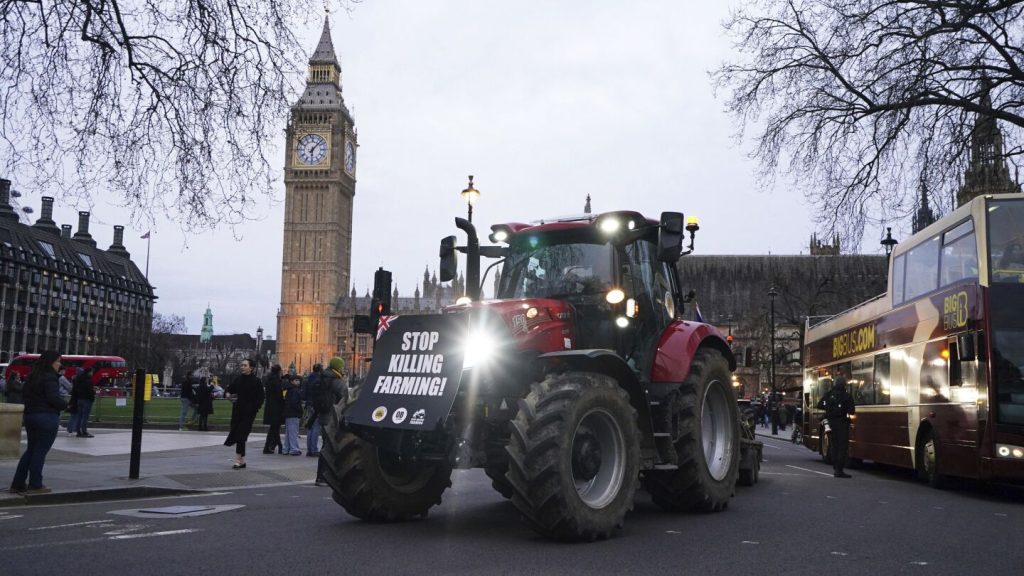The farmers’ protest in London on Monday saw dozens of tractors driving towards Britain’s Parliament to protest post-Brexit rules and trade deals that farmers believe are endangering livelihoods and food security. The campaign groups Save British Farming and Fairness for Farmers of Kent organized the protest, with supporters from southeast England and other districts joining in. The tractors, flying Union Jack flags and signs reading “Stop substandard imports,” made their way towards Parliament Square amidst cheers and honking horns. This protest marks a significant moment for U.K. agriculture, which has been heavily impacted by Britain’s exit from the EU and the trade deals that have followed.
The decision to leave the EU has had a major impact on British farmers, who initially backed Brexit in opposition to the EU’s Common Agricultural Policy. However, many farmers now feel that post-Brexit trade deals, such as those with Australia and New Zealand, have allowed for cheap imports that undercut British producers. Organizers of the protest also criticized labeling practices that allow products to display a Union flag even if they have not been grown or reared in Britain. The U.K. has also delayed checks on imports related to biosecurity, raising concerns among farmers who fear for the future of British food standards.
Liz Webster, a beef and arable farmer from western England and one of the protest organizers, expressed frustration with the government’s handling of the situation, stating that they feel “totally betrayed.” Polling data shows that the public supports British farming and wants to maintain high food standards while supporting local producers. The call for a radical change in policy and an urgent exit from what protesters deem to be detrimental trade deals is loud and clear. The impact of these deals on British food production could be devastating, prompting farmers to take to the streets to make their voices heard.
The protest in London comes at a time when farmers across the European Union are also voicing their concerns over bureaucratic rules, clean-air and soil targets, and unfair competition from foreign markets. The U.K. farming community is standing in solidarity with their EU counterparts as they fight to protect their way of life and the future of agriculture. The sight of tractors snaking their way through the streets of London towards Parliament sends a strong message to policymakers and the public that farmers will not sit idly by as their livelihoods are threatened by post-Brexit realities and trade deals that put them at a competitive disadvantage.
As the agricultural sector grapples with the challenges of a post-Brexit world, farmers are demanding action from the government to address their concerns and secure the future of British food production. The protest in London is a culmination of mounting frustrations and fears about the impact of trade deals and policy decisions on the farming community. The resilience and determination of the farmers who took part in the convoy to Parliament Square reflect a deep-seated commitment to their land, their produce, and their way of life. It remains to be seen how policymakers will respond to these concerns and whether meaningful change will come in time to safeguard British agriculture for future generations.


